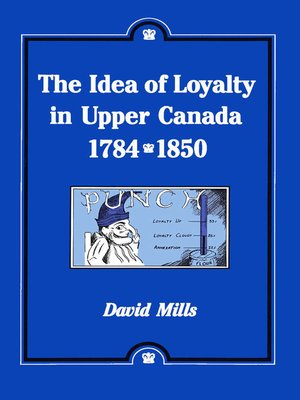
Sign up to save your library
With an OverDrive account, you can save your favorite libraries for at-a-glance information about availability. Find out more about OverDrive accounts.
Find this title in Libby, the library reading app by OverDrive.



Search for a digital library with this title
Title found at these libraries:
| Loading... |
Tory loyalty, in addition to demanding unquestioning adherence to the imperial connection, was exclusive. It was used both to distinguish Loyalists from the American late-comers and to differentiate supporters of the political status quo from opponents of the administration. Tories and Reformers attached different qualities to loyalty. Although the Tories framed the political debate, a moderate Reform conception developed in response. The importance of loyalty was unchallenged by moderate Reformers, but they wished to redefine it in ways that would legitimize their own political goals. They appealed to British political traditions that emphasized the idea of individual dissent based on constitutional rights and the necessary independence of legislators threatened by the use of prerogative power as well as the corruption of the executive. By the 1830s, the polarization of politics seemed to offer only two choices - loyalty or disloyalty. This transitional period led to the emergence of moderate and accommodative Toryism as a response to the exclusiveness of the Family Compact. Moderate Toryism developed because other groups, who were not prepared to give up their political and social exclusion, had been drawn into the debate. The moderate Reformers survived through the 1840s and entered the administration. Tories also prospered through adoption of the Reform position permitting new groups to enter the High Tory elite. The result was the formation of a conservative consensus which dominated Upper Canada, whose conservatism lay in a new definition of loyalty which had evolved through the initiatives of moderate Reformers.






